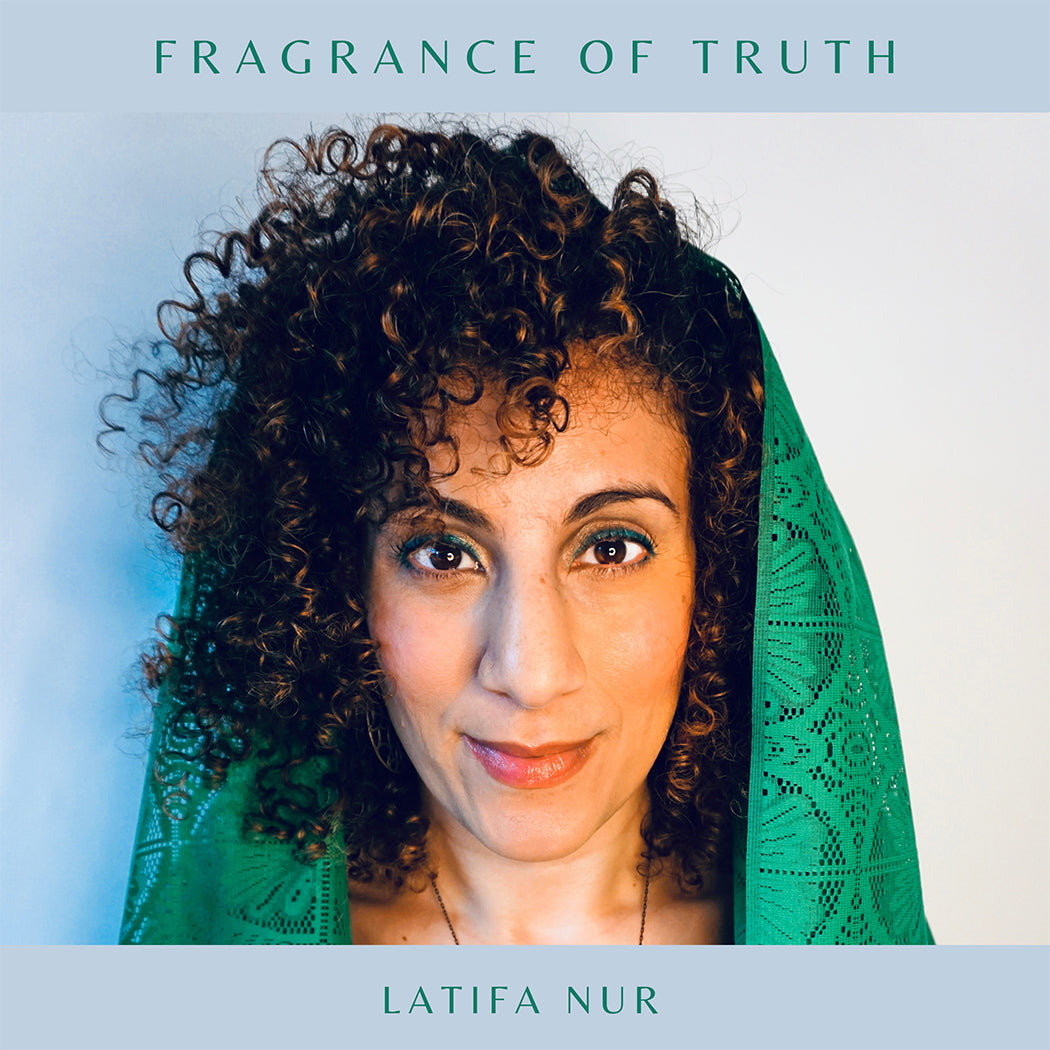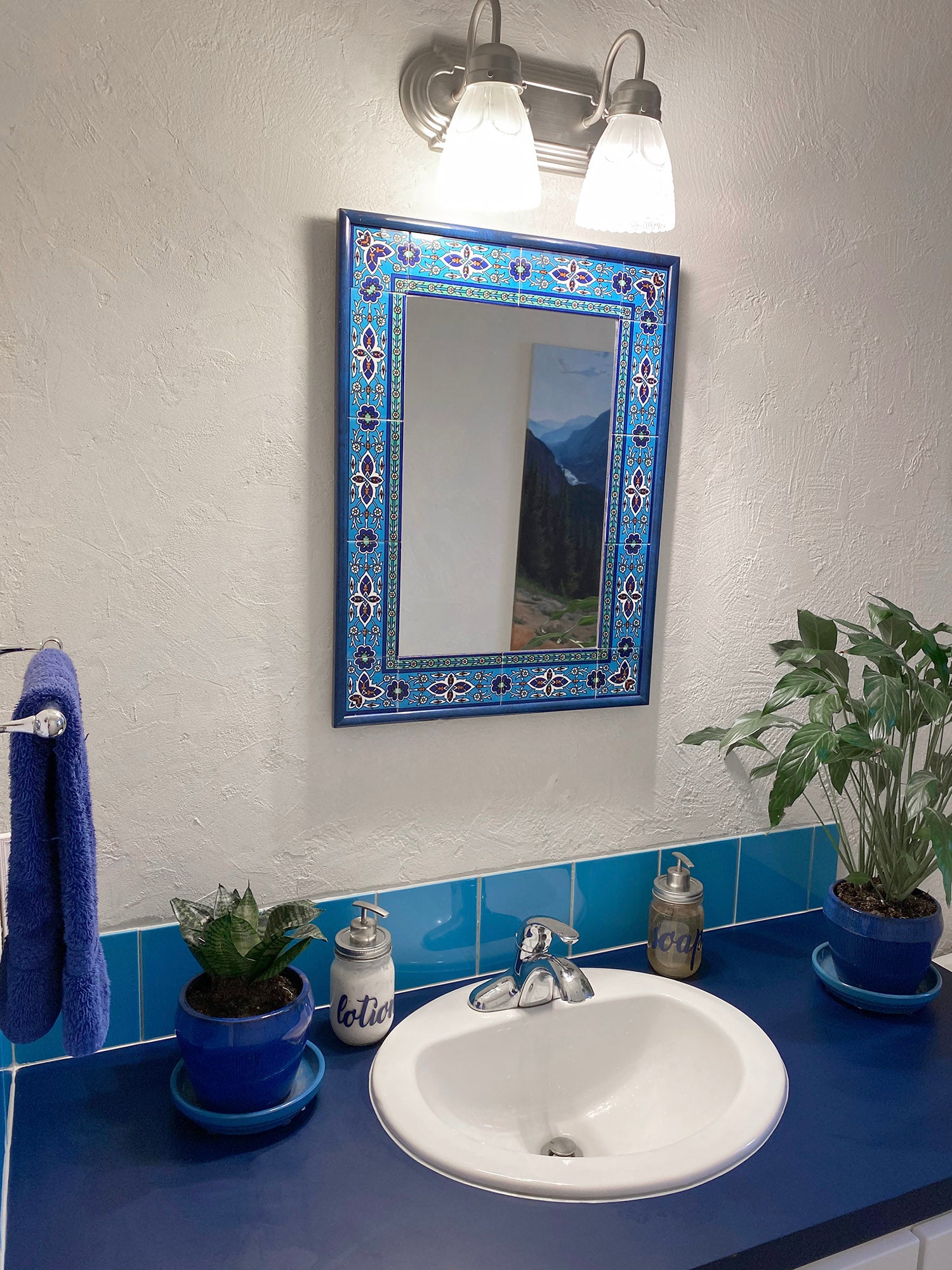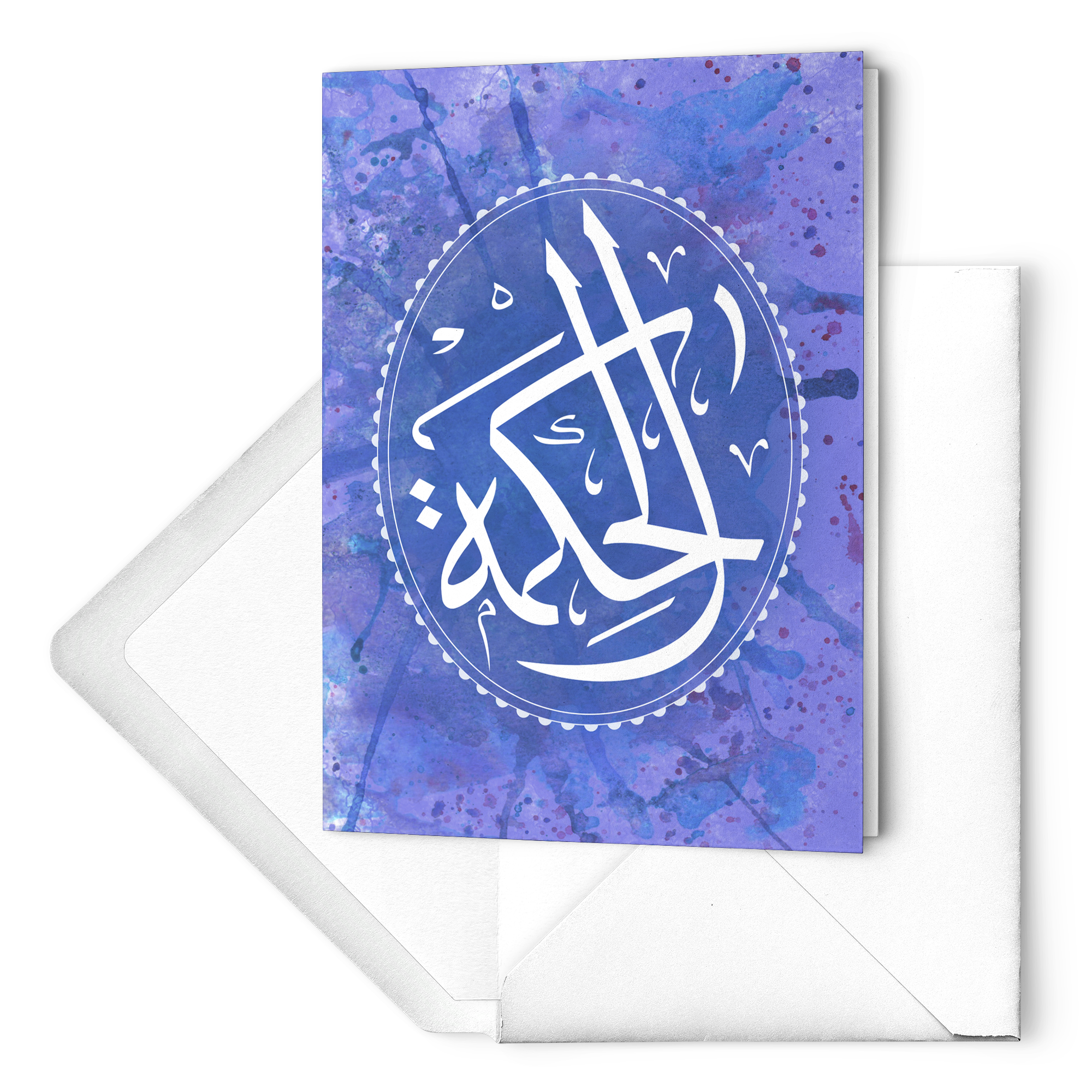
Featured Customer: Daliah Merzaban and her music project Latifa Nur
From time to time I feature a customer of mine who is working on something new or interesting. I decided to feature Daliah Merzaban after her music, under the name Latifa Nur, helped stop my baby from crying on multiple occasions.
Daliah, when we met back in 2013, I knew you as a journalist and then all of a sudden I hear you singing on Instagram! What happened that lead you on a journey to become a musician ?
Thank you for reminding me Katie of the beautiful circumstances under which we met in California eight years ago. I fell in love with your being and the incredible story that led to your Creative Impulse to make Arabic calligraphy jewellery during that trip. I have been wearing the pieces devotedly ever since then. I suppose what drew me to singing was a similar, Divinely-inspired Creative Impulse. I’ve worked in journalism since I was a teenager because it was a field in which I could use my greatest passion: storytelling. I’ve told countless stories over the years about countries, companies, industries, people. And yet as I was approaching my 40s, it dawned on me that I had never told my own story, never explored my own creative potential. My journey with poetry and music has been very much about expressing a process of self discovery, and particularly my personal struggles and realizations in healing trauma and awakening to the Divine Love that lives in the inmost heart. As part of this process, I found myself quite unexpectedly writing songs beginning in 2019, and realized a very deep longing that I hadn’t been in touch with to use my voice to sing my truth.
My musical journey began not with my voice, though, but with an instrument: the Turkish ney (reed flute). From the moment I unexpectedly birthed that elusive first sound more than three years ago, I’ve sensed that this instrument is seeking to teach me something about my essence, and more precisely, how far I’d strayed from my Self. I, like the reed torn from the reed bed, was dry and void of life until the Breath of Love enlivened my heart. It was, truly, an experience of love at first sound. Which brings me to the opening lines of Rumi’s Mathnawi:
Rumi says:
𝘓𝘪𝘴𝘵𝘦𝘯 𝘵𝘰 𝘵𝘩𝘦 𝘳𝘦𝘦𝘥 𝘢𝘯𝘥 𝘵𝘩𝘦 𝘵𝘢𝘭𝘦 𝘪𝘵 𝘵𝘦𝘭𝘭𝘴
𝘏𝘰𝘸 𝘪𝘵 𝘴𝘪𝘯𝘨𝘴 𝘰𝘧 𝘴𝘦𝘱𝘢𝘳𝘢𝘵𝘪𝘰𝘯
𝘌𝘷𝘦𝘳 𝘴𝘪𝘯𝘤𝘦 𝘵𝘩𝘦𝘺 𝘤𝘶𝘵 𝘮𝘦 𝘧𝘳𝘰𝘮 𝘵𝘩𝘦 𝘳𝘦𝘦𝘥 𝘣𝘦𝘥,
𝘮𝘺 𝘸𝘢𝘪𝘭 𝘩𝘢𝘴 𝘤𝘢𝘶𝘴𝘦𝘥 𝘮𝘦𝘯 𝘢𝘯𝘥 𝘸𝘰𝘮𝘦𝘯 𝘵𝘰 𝘸𝘦𝘦𝘱.
𝘐 𝘸𝘢𝘯𝘵 𝘢 𝘩𝘦𝘢𝘳𝘵 𝘵𝘰𝘳𝘯 𝘰𝘱𝘦𝘯 𝘸𝘪𝘵𝘩 𝘭𝘰𝘯𝘨𝘪𝘯𝘨
𝘵𝘰 𝘴𝘩𝘢𝘳𝘦 𝘵𝘩𝘦 𝘱𝘢𝘪𝘯 𝘰𝘧 𝘵𝘩𝘪𝘴 𝘭𝘰𝘷𝘦.
𝘞𝘩𝘰𝘦𝘷𝘦𝘳 𝘩𝘢𝘴 𝘣𝘦𝘦𝘯 𝘱𝘢𝘳𝘵𝘦𝘥 𝘧𝘳𝘰𝘮 𝘵𝘩𝘦𝘪𝘳 𝘴𝘰𝘶𝘳𝘤𝘦
𝘭𝘰𝘯𝘨𝘴 𝘵𝘰 𝘳𝘦𝘵𝘶𝘳𝘯 𝘵𝘰 𝘵𝘩𝘢𝘵 𝘴𝘵𝘢𝘵𝘦 𝘰𝘧 𝘶𝘯𝘪𝘰𝘯
[Mathnawi I, 1-4]
Looking back at the past few years of my journey as a dervish striving to embody Rumi’s guidance, it is as though these lines have come to life in my body — resonating against the inner lining of my being and igniting a fire that has consumed many self-limiting beliefs that were holding me back from my creative potential.
Latifa Nur's youngest fan: In this video, my son Jibreel is fussing. I put on Prayers Are Answered by Latifa Nur and he calmed down.
What was your inspiration behind the songs ?
When a song arrives, it always feels like a gift from the depths of my soul. I’m inspired by the unfolding of life, the struggles of being human, the wisdom of nature. I write about the spiritual path of moving from darkness into Light and I am particularly inspired by the awakening of Sacred Feminine consciousness which many people are experiencing across the world. I love simple lyrics that, I hope, convey simple truths that nonetheless conceal layers of meaning.
My debut song, Fall From Green, is about the healing process and the wisdom we can glean from watching trees let their leaves fall as they ascend toward heaven. The songs on my debut album, Fragrance of Truth, are all about my journey of awakening on Rumi’s Path of Love. The songs reflect my experience awakening to the Divine Love that rests at the inmost place in the human heart. They touch on universal truths of being human and offer a glimpse into the growing consciousness of Spirit that human beings around the world are awakening to. Walking the spiritual path kinda feels like walking up the stem of a rose, smelling the sweet fragrance streaming down while getting poked and stung by the thorns. In trying to capture this journey toward awakening, my lyrics reflect both this pain and this joy.
What would you consider your musical influences to be ?
This is a difficult question for me to answer because, when a song arrives, the words flow quickly and easily from an Unseen stream. I am not really thinking about it, so it is not that I am trying to write or sing in a specific style or way. This album is largely an endeavour to uncover my voice and my style. There are more contemporary folk-pop styles with piano, and a couple of songs that weave in some eastern influences as well, including instruments like the oud, plucked dulcimer and bansuri flute. I feel inspired to bring in western styles of music while also weaving in more spiritual instruments, like the old and ney (reed flute).
My debut EP includes two songs -- Roses Upon Roses and This Breath -- that have been picked up by Spotify playlist curators. Simrit Kaur, a musician with more than 55,000 followers on Instagram -- included both tracks on her Mantra Melodies playlist, while This Breath is included in playlists curated by @Danielwiththebalance and Raighes Factory. Dutch music blog Lefuturewave included Roses Upon Roses on its Indie playlist and said in its blog that I am "artistically on the same level" as artists like Adele and Kelly Clarkson.
How has Islam influenced your music ?
If you understand Islam in its truest spiritual sense as a path of surrendering to the Divine, this is a primary influence behind my lyrics. I am a dervish on the Mevlevi path of Sufism, which is the path of 13th Century mystic and poet Jalaluddin Rumi. Rumi is my pir, or Master, and I feel his presence very palpably while I am writing a song. There are very subtle references to his work, and to the Quran, in my songs and poetry. Prayers Are Answered, which seems to be a good tool for calming a child’s heart as your son has adorably shown above, is a song inspired by an experience with Nuri Muhammad, the Light of the Prophet, peace and blessings be upon him, that we can access in our inmost heart. I wouldn't, though, say the songs are strictly Islamic. They are universal, speaking to the human condition and our potential for healing and love.
What types of people tend to like your music ?
I’m at the beginning of my musical journey so there is still a process of finding an audience. My sense from the feedback I have received is that the music is appealing to people who are awakening to their spiritual selves, searching for the Divine within, healing psychological and ancestral trauma.

Tell me about the album art and how it relates to the music.
I asked artist Katerina Dotneboya to use her imagination to create illustrations based on the lyrics of each song on my debut EP. I was blown away by Katerina’s ability to capture the Essence behind the words of each song. I asked her to incorporate a woman in my likeness, with curly hair and Middle Eastern features. And after a lifetime of rarely seeing my features reflected in art -- from my unruly hair to the shape of my nose -- it was a beautiful experience to witness. It was a struggle for much of my life to connect to my beauty because so much of what was mirrored back to me by society reflected an image that was impossible for me to attain. The process of creating my album, including the photograph of myself on the album cover (taken by my sister), really helped me step into my own beauty and power. If you listen on Spotify on a mobile device, you’ll see Katerina’s artworks in the backdrop of each song.
What items of jewelry from my collection do you own?
The first pieces I bought back in 2013 were an Allah necklace and the Salaam/Shalom peace earrings. I later also bought your Iman (Faith) Arabic Sterling Silver Ring, which has rarely left my finger in four years, and an accompanying pair of earrings. More recently, added the Imaan (Faith) Arabic Calligraphy Earrings in lapis lazuli and the beautiful Baraka Arabic Calligraphy Silver Coin and Pearl Kinetic Earrings.
This doesn't include the gifts I’ve gotten for friends, several of whom have your Imaan (Faith) prayer beads (I still need to buy one for myself!) I’ve also given the Health (Saha) Arabic calligraphy necklace, Love and pearls Arabic calligraphy earrings and Arabic calligraphy Justice ring to dear friends, who have all loved them and worn them with deep gratitude.
In this photo, Daliah is wearing the Baraka Coin and Pearl Kinetic Dangle Earrings

What do they mean to you or what inspired you to buy them?
I enjoy buying beautiful things made with Love and it is clear that every piece of jewellery you create comes from a place of deep faith and trust in the Sustainer. They all carry important reminders and messages and there is a great attention to detail. I cannot tell you how many compliments I have received over the years for the Salaam/Shalom earrings. It is beautiful to see people react to seeing both Arabic and Hebrew in the same place, and to realise that the message underlying everything is peace. My faith ring reminds me always of the faith nestled in the depths of the heart, even when the circumstances of life are difficult. Above all else, the pieces are beautiful. I love wearing delicate earrings and that aren’t, at the same time, too distracting. You have found the perfect balance in your jewellery making.
Where can people buy or listen to your music?
You can find my debut EP, Fragrance of Truth, anywhere you listen to music. All the links are available here: https://linktr.ee/LatifaNur



Leave a comment
This site is protected by hCaptcha and the hCaptcha Privacy Policy and Terms of Service apply.